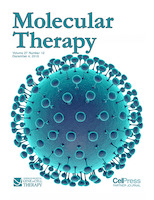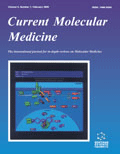
BIOFACTORS
Scope & Guideline
Exploring the Nexus of Science and Clinical Practice
Introduction
Aims and Scopes
- Bioactive Compounds and Their Mechanisms:
Research on the mechanisms of action of various bioactive compounds, including phytochemicals, vitamins, and other natural products, and their roles in health and disease. - Cancer Biology and Therapeutics:
Studies exploring the molecular pathways involved in cancer progression, resistance mechanisms, and the potential of bioactive compounds as therapeutic agents. - Metabolic and Endocrine Disorders:
Investigations into the effects of bioactive substances on metabolic syndromes, obesity, diabetes, and related endocrine disorders. - Neurobiology and Neurodegenerative Diseases:
Research focused on the neuroprotective effects of various compounds and their roles in neurodegenerative diseases such as Alzheimer's and Parkinson's. - Inflammation and Immunomodulation:
Exploring the roles of bioactive compounds in modulating inflammatory responses and their therapeutic implications in chronic diseases. - Microbiome and Gut Health:
Studies examining the interactions between dietary components, gut microbiota, and their influence on overall health and disease outcomes. - Oxidative Stress and Antioxidant Defense:
Research on the role of oxidative stress in disease processes and the therapeutic potential of antioxidants derived from natural sources. - Molecular and Cellular Biology:
Investigations into cellular signaling pathways, gene expression, and the role of non-coding RNAs in various biological processes.
Trending and Emerging
- Personalized Nutrition and Metabolism:
An increasing focus on how individual variations in metabolism affect responses to dietary bioactive compounds, leading to personalized nutrition strategies. - Nanotechnology in Drug Delivery:
Emerging research on the use of nanotechnology to enhance the delivery and efficacy of bioactive compounds in therapeutic applications. - Gut-Brain Axis:
Growing interest in the interactions between gut microbiota and neurological health, highlighting the role of dietary components in influencing brain function. - Plant-Derived Compounds in Chronic Disease Management:
A rising trend in exploring the therapeutic potential of plant-derived compounds in managing chronic diseases such as diabetes, cardiovascular diseases, and cancer. - Immunotherapy and Bioactive Compounds:
Increased exploration of the role of bioactive compounds in enhancing immunotherapeutic approaches for cancer and other diseases. - Epigenetics and Bioactive Compounds:
Emerging research on how bioactive compounds can influence epigenetic mechanisms, potentially affecting gene expression and disease outcomes. - Sustainability and Bioactive Compounds:
A growing emphasis on sustainable sourcing and the environmental impact of bioactive compounds, reflecting a broader trend towards environmentally conscious research.
Declining or Waning
- Traditional Herbal Medicine:
There has been a noticeable decrease in publications focused on traditional herbal medicines and their applications, which may reflect a shift towards more mechanistic and targeted studies involving specific bioactive compounds. - Basic Biochemical Pathways:
Research focusing solely on basic biochemical pathways without direct relevance to health outcomes or therapeutic implications seems to be less frequent, indicating a trend towards more applied research. - Animal Models of Disease:
While animal studies remain vital, there is a waning interest in certain animal model studies, particularly those that do not translate directly to human health or therapeutic strategies. - Epidemiological Studies:
Epidemiological research examining population-level health outcomes related to bioactive compounds appears to be less emphasized in recent issues, possibly overshadowed by more mechanistic studies.
Similar Journals

MOLECULAR THERAPY
Catalyzing advancements in patient-centered molecular therapies.MOLECULAR THERAPY, published by CELL PRESS, is a distinguished journal in the field of molecular biology and therapy, renowned for its significant contributions to drug discovery, genetics, and pharmacology since its inception in 2000. This prestigious journal, which holds a commendable position in the Q1 category across multiple disciplines including Drug Discovery, Molecular Medicine, and Molecular Biology, facilitates cutting-edge research and innovative therapies that aim to improve patient outcomes. With an impressive Scopus ranking that places it among the top journals in its field—such as rank #6 in Drug Discovery and #8 in Pharmacology—MOLECULAR THERAPY is crucial for researchers, professionals, and students seeking to advance their understanding and application of molecular techniques. The journal welcomes high-quality submissions that explore the therapeutic potential of molecular mechanisms, fostering a collaborative spirit within the scientific community to push the boundaries of modern medicine.

Cell Stress
Illuminating the Pathways of Stress in CellsCell Stress is a prestigious, peer-reviewed open access journal dedicated to advancing research in the fields of biochemistry, genetics, molecular biology, cancer research, and physiology. Published by SHARED SCIENCE PUBLISHERS OG in Austria, this journal has rapidly established itself since its inception in 2017, achieving Q1 status in multiple categories, indicative of its high impact and quality. With an impressive Scopus ranking—holding a top percentile position in its respective fields—Cell Stress aims to foster interdisciplinary collaboration and disseminate cutting-edge findings that enhance our understanding of cellular stress mechanisms and their implications in health and disease. The journal's commitment to open access since its launch ensures that critical research is accessible to a global audience, thereby facilitating the exchange of knowledge among researchers, professionals, and students alike. Address your submissions or inquiries to AM BLUMENHAG 25-4, Graz 8010, Austria, and contribute to this dynamic platform that is shaping the future of molecular medicine.

ACTA BIOCHIMICA POLONICA
Shaping the Future of Biochemistry with Every PublicationACTA BIOCHIMICA POLONICA (ISSN: 0001-527X, E-ISSN: 1734-154X) is a distinguished journal published by the ACTA BIOCHIMICA POLONICA in Poland, with a rich history dating back to 1955. As a prominent platform for disseminating research, it currently holds a Category Quartile of Q3 in the fields of Biochemistry, Genetics, and Molecular Biology, reflecting its commitment to advancing knowledge in these critical areas. This journal is indexed in Scopus, ranking 124 out of 221, placing it in the 44th percentile among general biochemistry, genetics, and molecular biology journals. Although it does not operate under an open-access model, ACTA BIOCHIMICA POLONICA remains a vital resource for researchers, professionals, and students seeking to delve into the latest developments and discoveries in biochemistry and molecular biology. Its strategic focus on contemporary topics ensures that it plays an essential role in shaping future scientific inquiries and fostering collaboration across various disciplines.

REDOX REPORT
Empowering Discoveries in Clinical BiochemistryREDOX REPORT is a peer-reviewed academic journal published by Taylor & Francis Ltd, focusing on the latest advancements in the fields of biochemistry, clinical biochemistry, and physiology. Since its inception in 1996 and transitioning to an Open Access model in 2018, this journal has aimed to disseminate high-quality research findings and foster discussions within the scientific community. Positioned in the Q2 quartile across several relevant categories, including Biochemistry, Cell Biology, and Clinical Biochemistry, REDOX REPORT is recognized for its commitment to impactful research. The journal plays a crucial role in bridging the gap between fundamental biochemical research and its clinical applications, making it an essential resource for researchers, professionals, and students alike. With a consistent publication record extending to 2024, REDOX REPORT is dedicated to featuring cutting-edge studies that advance our understanding of redox biology, thereby contributing significantly to the ongoing dialogue in the life sciences.

CURRENT MOLECULAR MEDICINE
Empowering Research for Tomorrow’s Medical BreakthroughsCURRENT MOLECULAR MEDICINE is a pivotal journal fostering advancements in the interdisciplinary fields of molecular medicine, biochemistry, and genetics. Published by Bentham Science Publishers, this esteemed journal has been disseminating vital research findings since its inception in 2001 and is continuously dedicated to exploring the molecular basis of health and disease. With a focus on translational research, CURRENT MOLECULAR MEDICINE provides an invaluable platform for researchers, healthcare professionals, and students, making significant contributions to the understanding of molecular mechanisms and therapeutic strategies. With an ISSN of 1566-5240 and an E-ISSN of 1875-5666, the journal holds a commendable position within the scientific community, being ranked Q3 in Biochemistry and Molecular Biology and Q2 in Medicine (miscellaneous) as of 2023. This journal does not currently operate on an open access model but remains accessible through various institutional subscriptions. The multidisciplinary scope covering molecular biology to medicinal applications positions CURRENT MOLECULAR MEDICINE as an essential resource for those striving to meet the challenges of modern healthcare and biomedical research.

International Journal of Biological Sciences
Empowering the Global Community with Life Science InsightsInternational Journal of Biological Sciences (ISSN: 1449-2288, E-ISSN: 1449-2288) is a premier open-access journal published by IVYSPRING INTERNATIONAL PUBLISHING since 2005, located in Australia. With a commitment to advancing knowledge in the life sciences, this journal covers a wide spectrum of disciplines, including Applied Microbiology and Biotechnology, Cell Biology, Developmental Biology, Ecology, Evolution, Behavior and Systematics, and Molecular Biology, earning a distinguished Q1 ranking in these fields as of 2023. It stands out with exceptional Scopus rankings, placing in the top ranks across multiple categories, such as the 98th percentile in Ecology, Evolution, Behavior and Systematics and the 94th percentile in Applied Microbiology and Biotechnology. The journal fosters an open access philosophy, ensuring that research findings are readily available to the scientific community and the public, and invites original research articles, reviews, and commentaries. With its mission to disseminate high-quality research, the International Journal of Biological Sciences serves as an essential resource for researchers, professionals, and students seeking to deepen their understanding and drive innovation in biological sciences.

CELLULAR PHYSIOLOGY AND BIOCHEMISTRY
Unleashing Innovations in Physiology and BiochemistryCellular Physiology and Biochemistry is a premier Open Access journal published by the prestigious Cell Physiol Biochem Press GmbH & Co, dedicated to advancing research in the fields of physiology, biochemistry, and molecular biology. Since its inception in 1987 and transitioning to an Open Access model in 2013, the journal has established itself as a vital resource for the dissemination of high-quality research and reviews, showcasing innovative methodologies and groundbreaking findings in cellular processes. With an impressive ranking in the 2023 Scopus category as Q2 in Physiology and a robust percentile of 61, Cellular Physiology and Biochemistry is committed to fostering academic dialogue among researchers, professionals, and students alike. This journal not only provides unrestricted access to its articles, but also promotes the global sharing of knowledge, which is essential for the advancement of our understanding in these vital scientific areas. The journal's editorial team is dedicated to ensuring the highest standards of academic rigor and relevance, making it an indispensable addition to the libraries of those engaged in the life sciences.

METABOLIC BRAIN DISEASE
Elevating research on brain health and metabolism.METABOLIC BRAIN DISEASE, published by SPRINGER/PLENUM PUBLISHERS, is a leading journal dedicated to advancing our understanding of the metabolic processes impacting brain health and disease. Established in 1986 and set to continue until 2024, this journal encompasses a wide range of interdisciplinary research that intersects the fields of Biochemistry, Cellular and Molecular Neuroscience, and Neurology, as evidenced by its notable quartile placements in Q2 and Q3 for 2023. With an ISSN of 0885-7490 and an E-ISSN of 1573-7365, it serves as a vital resource for researchers and practitioners aiming to deepen their insights into cerebral metabolic disorders and their implications. Although currently not an Open Access option, its rigorous peer-review process ensures that high-quality, impactful research reaches its audience. Showcasing a significant rank within the top percentile of its categories, METABOLIC BRAIN DISEASE is instrumental in shaping the future of neurological research and clinical applications.

ACTA BIOCHIMICA ET BIOPHYSICA SINICA
Fostering Global Collaboration in Biochemistry and Biophysics.ACTA BIOCHIMICA ET BIOPHYSICA SINICA, an esteemed journal published by SCIENCE PRESS, is a leading platform in the fields of biochemistry, biophysics, and molecular biology. Based in the United Kingdom, this journal has consistently ranked in the Q2 category for Biochemistry, Biophysics, and Medicine (miscellaneous) in 2023, showcasing its commitment to high-quality research and innovation in life sciences. With a convergence period extending from 1996 to 2024, it features critical insights into biochemical and biophysical processes that underlie biological phenomena. Researchers and professionals seeking to stay at the forefront of discoveries will find its articles to be both informative and transformative. Although not an open-access journal, ACTA BIOCHIMICA ET BIOPHYSICA SINICA aims to advance knowledge and foster collaboration among scientists worldwide, emphasizing its role in the dynamic landscape of biomedical research.

EXPERIMENTAL AND MOLECULAR MEDICINE
Advancing the frontiers of molecular medicine.EXPERIMENTAL AND MOLECULAR MEDICINE, published by SpringerNature, is a premier open-access journal that has been at the forefront of biomedical research since its establishment in 1996. With a focus on innovative studies in biochemistry, molecular biology, and clinical biochemistry, the journal has consistently maintained a distinguished position within the top quartile (Q1) across multiple categories, underscoring its significant impact in these fields. The journal offers researchers and practitioners a platform for high-quality, peer-reviewed articles that advance our understanding of molecular mechanisms underlying health and disease. As a crucial resource for scholars seeking to explore cutting-edge research and practical advancements, its inclusion in relevant databases such as Scopus reflects an exceptional ranking with notable percentiles—placing it among the best in biomedical sciences. With a commitment to open access, EXPERIMENTAL AND MOLECULAR MEDICINE ensures that findings are readily available to the global academic community, facilitating collaboration and innovation in molecular medicine.